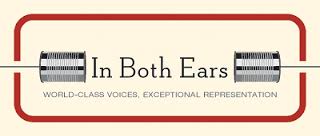This Voice For Hire
From
Citytalk Magazine
By
Kevin Davis
His voice is absent of accent, nasality or laryngeal irregularity. He speaks at just the right volume, cleanly and steadily. sounding casual but confident, occasionally musical but not overly orchestral.
It's a voice you trust like an old friend. Perhaps you've heard it before in a Hallmark commercial: "When you care enough to send the very best" Or for Raid: "Kills bugs fast. Kills bugs dead." You've probably heard it in ads for McDonald's, Energizer batteries or Disney World.
Because he speaks without exaggeration, exclamation or gimmick, you may never give his pronouncements a second thought. Harlan Hogan is a voice-for-hire, an orator of catchy slogans and narrator in all manner of media, the disembodied celebrity no one knows.
On a recent morning we met up with him in his northwest suburban home and studio as he prepared to record voice-overs for a chicken company.
Much of the work is obscure and routine. Hogan has narrated industrial films, recordings for kiosks advertising corn seed, videos explaining 401K plans and a CD to help pharmaceutical sales people learn to pronounce medical terms. "We re not doing Shakespeare here," he says.
The Chicago native shares his story in a new book VO: Tales and Techniques of a Voice-over Actor. It's about his life as a broadcaster, advertising copywriter and voice man. The book is also a how-to for aspiring voice-over artists. "Talking into the microphone is an infinitesimal part of my day says Hogan. 56. "Its a business. The real work is getting the work".
Hogan, who studied acting, never thought he had a special voice. "I almost called the book the 'Unremarkable Voice,' because that's what I have," he says. It's his ability to make it look easy that's remarkable. Hogan steps into his one-person recording booth for a practice run of the chicken ad, his voice amplified and crisp on the monitors "There was a time when a handshake was more than a gesture" he says, perfectly spacing the words and calculating the pauses in a folksy style.
"Gold Kist Farms Chicken. Nothing's fresher," he says, hanging there for a moment, "than getting it from a farmer".
Good voice work is not about creating artificial, exaggerated or cliche broadcast voices. Sounding true and natural works best. "The biggest problem is trying too hard," he says.
To test his theory, we get into the booth and read from the chicken script. "There was a time..." Our voice sounds important on the monitor. But it's hesitant and unsteady The pause is too long before the last line.
"You need to make it sound a little more like storytelling, a little more relaxed," Hogan says. "And we need to cut a half second."
We'll leave the voice work to the man with the unremarkable voice.







